- Home
- Darrell Maloney
The Final Chapter Page 2
The Final Chapter Read online
Page 2
They were also the best source of seeds, for the early farmers now had established plants and plenty to eat.
Julio was the head of maintenance at the hotel when the first blackout occurred.
He became the de facto general manager when everyone else gave up trying to run a high-rise hotel with no electricity and left for greener pastures.
Julio boarded up the lower floors of the place and took up permanent residence on the ninth floor with his wife of forty one years, Maria.
It was a very smart move, for nobody was willing to climb nine flights of stairs to steal from them.
They were pretty much left alone.
And that was fine with them.
Another tact Julio implemented early on was to earn a reputation as a grouchy and miserable old man.
His logic was simple.
If he cursed and yelled anytime a stranger approached him, eventually they’d stop approaching him.
Beggers left him alone.
Neighbors left him alone.
Strangers, not knowing any better, sometimes asked him for advice or directions.
But they only asked him once, and tended to get away from him as quickly as possible.
People up and down the river walk took to calling him Loco Julio.
John Castro met him one day while working a murder case. He was sitting on a bench alongside the river when Julio yelled at him from his ninth floor balcony.
He wasn’t very nice, calling John a dozen derogatory names while at the same time asking for his help.
Most people would have walked away, but John’s curiosity was piqued.
John helped him fill several large coolers with river water, which Julio lifted hand over hand via a rope to his balcony.
John finished the task and went on his way, but Julio never really left his mind.
On another day, his murder case finished, John himself climbed those nine flights of stairs to check out the grumpy little man and find out what his story was.
He’d been friends with Loco Julio and Maria ever since.
Five years after moving from San Antonio to Junction, John decided to go back for a visit.
-4-
Julio collected the last of his beans and placed them in a small burlap bag with a drawstring.
He was careful to verify his count: exactly fifty beans.
The beans were better than gold, he’d found. He could trade the whole bag for something worthwhile. Or he could sell them for gold or silver.
Or he could break down the bag and sell or trade them a few at a time for smaller items.
When one was the only person at the market with such beans, and when everyone was missing their morning coffee, he was a very popular man indeed.
Manufactured coffee was now impossible to come by. The same was true of cigarettes.
Every Saturday Julio would set up at the farmer’s market at the very same place. He’d roll out a blanket beneath the oak tree on the corner of Navarro and East Travis.
People showed up all the time saying, “Are you Julio? I was told to ask for Julio.”
Julio would invariably growl, as though just awakened from a very long nap, “Hell yes, I’m Julio. What do you want?”
The prospective buyer would sometimes lower his voice, as though he were trying to purchase something illicit.
“So and so told me you had some coffee seeds to sell.”
Or, for those who once smoked and now couldn’t find cigarettes, tobacco seeds.
Julio had fun every time he heard the term “coffee seeds.”
“Coffee seeds? There ain’t no such thing, you dummy. I’ve got coffee beans. Beans! How in heck are you gonna buy something if you don’t even know what you’re looking for, you big dope?”
“I’m s…sorry, sir. I was told you had seeds so I can grow my own coffee. That’s all.”
“The plants grow from the beans. There ain’t no such thing as a coffee seed. Now then, what you got to trade, dummy?”
Julio took no particular offense at the confusion.
He was actually a very nice man, Maria once told John.
Being abrasive was just his way of keeping people at arm’s length.
Julio believed that people only wanted to be his friend so they could take advantage of him or get something out of him.
In his mind, being abrasive prevented that, because it kept people from getting close to him.
And despite Maria’s contention to the contrary, he found that grumpiness suited him.
He rather enjoyed it.
Maria was gone now, for just over a year.
With her was buried the secret that Julio was actually an affable and loveable guy.
Down deep, that is.
After tying his shoes Loco Julio checked his watch.
It was a quarter of nine.
He was right on time.
As he stood and looked around for his hat, he heard someone yelling just outside the stairwell door.
“Julio! Maria! Don’t shoot me, I’m coming in. It’s John Castro!”
Julio paused for a brief minute, trying to place not only the name, but the voice as well.
He’d heard both before.
But it had been awhile.
And at seventy six years of age, memories were way more elusive than they once were.
As the door to the stairwell opened Julio smiled broadly.
“Well, I’ll be damned. It’s about time you got your ugly butt back to San Antonio to see me, you sorry son of a bitch.”
“Hey, take it easy on me, Julio. It’s not as easy as it once was to travel a hundred and ten miles to visit somebody who doesn’t make you feel wanted anyway.”
“Don’t hand me that, John. You left out of here in a police car. I know you can pull enough strings to commandeer another one just like it.”
“Okay, I’m busted.”
John had, in fact, signed out his Kerr County patrol vehicle for a few days so he could visit the Alamo City and see how things were running five years after they left.
Hannah was going to come with him but came down with a stomach bug and was visiting the bathroom every couple of hours.
Not a good condition to have when traveling, so she took a pass.
Julio grated on her nerves the last time they saw each other and she had no real desire to hang out with him again anyway.
As she put it, “He seems to go out of his way to be abrasive or abusive, and curses me in every breath.”
Her description summed Julio up perfectly, and John couldn’t blame her for not being eager to see him again.
John was carrying a bouquet of wildflowers and a bottle of wine.
Julio couldn’t resist.
“Forget it, loser. That wouldn’t get you to first base with me. And you’re not my type anyway. You’re way too damn ugly.”
“That’s nice to know, Julio. You have no idea how glad I am to know that. These are for Maria. Is she around?”
Julio’s smile left his face and he grew solemn.
“That’s right. You couldn’t have known.
“Maria died a year ago, on May twentieth.”
“Oh my God, Julio. I’m so sorry.”
“So am I, John. I miss her every day, with each breath I take.”
“How…?”
“She did it the way we all should die, John. She wasn’t murdered and didn’t take her own life. She passed away quietly in her sleep.”
“Where is she buried?”
“San Fernando Cemetery. We can swing by there on our way and you can put the flowers on her grave. I visit her a couple times a week myself.”
“On our way?”
“To the farmer’s market. You’re taking me. It’s the least you can do for slowing me down and making me late.”
“Oh. Okay, sure.”
-5-
Julio’s hotel was a few short blocks from the market and it was a beautiful south Texas morning.
And the intimate San Ferna
ndo Cemetery was indeed along the way.
The pair decided to walk.
Along the way they caught up on a few things.
“I noticed coming into town the vehicles have all been cleared from the interstates and from Loop 410. Where did they all go?”
“The Army came in right after you left and helped us a lot, John.
“A lot of people were suspicious of them. Thought they were here to confiscate our land or to put us into concentration camps.
“But that wasn’t it at all.
“They helped us in all kinds of different ways.
“One of them was to give the city working tow trucks so they could clear all the roadways.
“Have you been down to the river walk?”
“No, I parked on South Alamo and came in through the street side stairwell.”
“You have to see the river, John. It’s lined with citrus trees now.”
“Citrus trees?”
“Yes. Well, citrus and pecans.
“The Army worked with the Agricultural department at the University of Texas San Antonio. They grew thousands of seedlings in their greenhouses and Army crews planted them along the entire length of the San Antonio River. From one end of the city limits to the other, every fifty feet there’s a tree.”
“But why?”
“To help feed the survivors.
“They also went to every block in the city and asked to see whoever was in charge. If the block had no designated leader they asked them to appoint one.
“They worked with the leaders and helped them create rainwater collection systems.
“They helped them tear down abandoned houses and break up their foundations. Then to use the broken concrete to steer storm water runoff to help them with irrigation.
“They helped treat their soil and showed them how to plant their crops for maximum yield.
“And they taught them how to care for their livestock.”
“Livestock? Where in the world did they get livestock?”
“The city zoned the corner lots of each residential street as livestock land. Each block could choose to have three head of cattle, four swine or twelve chickens.
“Not all blocks wanted to participate, but those which declined are regretting it and wishing they had.
“The city stipulated that they had to clear the corner properties of their houses and break up their foundations, then to fence in the properties.
“They had to devote four other properties to growing grain or some type of animal feed.
“And they had to build stalls or small barns or chicken coops to house their livestock.
“All of that had to be done within six weeks, and it was a lot of work for some blocks which only had a handful of survivors.
“But a lot of block leaders took on the project, and after six weeks the Army came through and distributed the animals.”
“You said some people who didn’t participate wish they had. How come?”
“Because the people with the livestock are making out like bandits. When the Army brought out the animals they had a two to one female to male ratio.
“For example, One healthy bull and two cows. They learned to artificially impregnate the cows so they each have a calf every year. The calves are fattened up, and after a year they’re slaughtered.
“The meat is taken to the farmer’s market and traded for anything and everything. Those blocks which have meat to trade are living high on the hog, pardon the pun.
“The same is true for those blocks which have pigs or chickens.
“Some operations have milk cows and provide milk at the farmer’s markets.
“Of the poultry farms, about half of them raise chickens for slaughter, the other half for egg production.
“It’s still controversial, because a lot of folks complain the whole city smells like a stockyard now.
“But everybody’s eating well, and nobody’s having to steal anymore.
“The Army got everybody to specialize in growing certain crops. For example, one block might grow just cucumbers. Another might grow squash.
“Each block keeps back what they need for their own residents and brings the rest to the market, where they trade their cucumbers for another block’s squash and another block’s watermelon or potatoes.”
“Potatoes? In San Antonio?”
“Yes. The Army spent a lot of time building potato beds for some blocks.”
“I didn’t know the soil was suitable for potatoes. I thought it had too much clay in it.”
“Oh, it does. It’s thick and pasty and not well suited for underground crops like potatoes.
“That’s why the Army built the grow boxes.
“They blended just the right mixture of natural clay soil with topsoil they brought in from farther south. They mixed that with compost and tree bark and sand and made a very loose soil that’s rich in minerals.
“Perfect for growing potatoes.
“They did the same thing for carrots and onions and peanuts too.
“Now in essence, the weekly farmers market has replaced the supermarket.”
As soon as they crossed East Travis Street and entered Travis Park several people came up to Julio and asked him if it was true he had tobacco seeds.
“Yes,” he said. “They’re tiny, not much bigger than a grain of sand. So I don’t try to count them out anymore. I sell them like a heroin dealer sells heroin, in a tiny bag. Each bag holds a gram full of seeds.”
One of the less-than-bright potential customers replied, “You sell heroin too?”
“No, you big dummy. I sell two things. Tobacco seeds for fifty blue a gram and coffee beans for ten blue bucks apiece.
“I don’t negotiate because I don’t have to. I know this stuff is rare. Take it or leave it and see if you can find anybody else within a hundred miles who has either one.”
“I don’t know. Fifty blue dollars is kinda steep.”
Julio, as promised, didn’t waiver.
“So don’t buy it then.”
He did indeed have the corner on the market.
Some of his early customers surely had mature plants of their own by now, and almost certainly were harvesting their own seeds and sharing them with their friends.
Julio often wondered why none of them showed up at the market to compete with him.
Perhaps they were afraid of the little man with a bad attitude and what he might do to them for encroaching on his territory.
Or perhaps they just failed to realize the potential.
The United States, three years before, had declared the almighty dollar worthless.
Too many banks had been broken into, and there were too many millions of dollars in the hands of thieves and gangsters.
“Green money,” the Secretary of the Treasury announced, “is no longer worth the paper it’s printed on.”
They began producing what they appropriately called “Blue Dollars,” using the same paper and same printing plates.
The blue dollars were printed with dark blue ink, but were otherwise exactly like the old currency.
They distributed millions to communities and municipalities to use for hiring people to get them back to work again.
Industry was slow to respond, so pretty much all workers who had the blue money were city employees. The city was by far the biggest employer in town.
One couldn’t go into a supermarket and buy a box of cereal.
But at least the garbage was being picked up.
-6-
After Julio’s first customers left and he waited for more John took the chance to ask, “Julio, you’ve already got a nice place to live where nobody bothers you. You don’t need to come out here every Saturday and hustle your wares.
“Why don’t you relax? Let somebody else wear themselves out trying to become new first blue money millionaire.
“It seems to me you don’t need the money.”
Julio smiled broadly and said, “To tell you the truth, John
, I like doing this. It gives me something to do with my time. That way I won’t miss Maria so much.
“Besides, I need the money so I can leave something good for the kids.”
“Kids? I could have sworn you told me before that you didn’t have any kids.”
“Things change in five years time, my friend. Let me bring you up to speed.”
“Not long after you left, maybe four years ago, Maria and I were walking along the river walk on a stroll and came across a teenaged boy and girl who were eating from a bag of dry dog food.”
“You’re kidding.”
“Hell no, I’m not kidding, you big dummy. Why would I kid about something like that?”
“Sorry. Please go on.”
“Anyway, we saw them eating dog food and kept on walking. Maria told me after we got back to our hotel she was so stunned she didn’t know what to say.”
“What did you say to them?”
“I didn’t say anything. I didn’t know what to say either.”
“I find it hard to believe you were speechless.”
“Oh, shut up and quit interrupting me so I can finish.”
“Sorry.”
“Anyway, later that night she started crying and went on and on about how we should have helped them and how we had plenty to eat and surely we could have spared some.
“It affected her so much she couldn’t sleep a wink that night.
“And of course when Mama don’t sleep, nobody sleeps.
“Along about four o’clock in the morning or so she decided my new mission in life was to find those kids and bring them home to live with us.
“I, of course, thought she was crazy. I said she’d better watch it or they’d stop calling me Loco Julio and start calling her Loco Maria.
“But she had her mind made up, and as a husband you know that once a wife’s mind is made up there’s no changing it.”
“Yes,” John concurred. “I’ve noticed the same thing myself.”
“Anyway, the next morning I started my search for Kibbles and Bits.”
“Kibbles and Bits?”
“That’s what I called them. The boy was Kibbles, the girl was Bits.

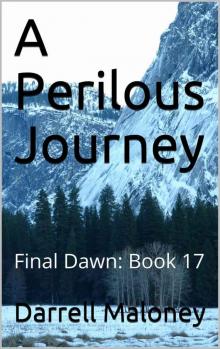 A Perilous Journey
A Perilous Journey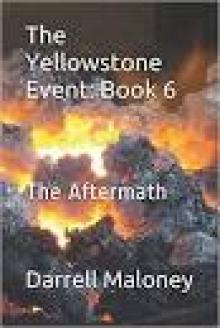 The Yellowstone Event: Book 6: The Aftermath
The Yellowstone Event: Book 6: The Aftermath Eden Bound
Eden Bound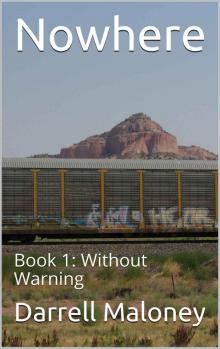 Without Warning
Without Warning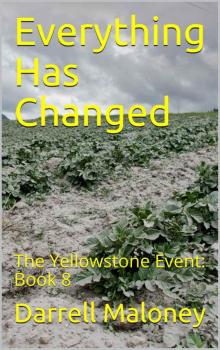 Everything Has Changed
Everything Has Changed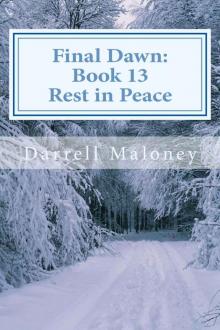 Rest in Peace
Rest in Peace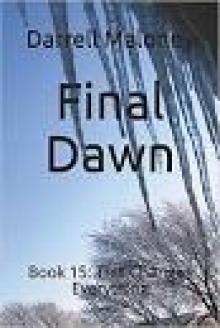 This Changes Everything
This Changes Everything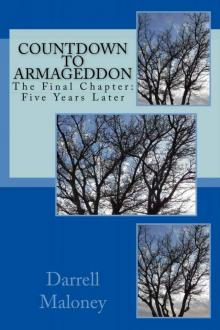 The Final Chapter
The Final Chapter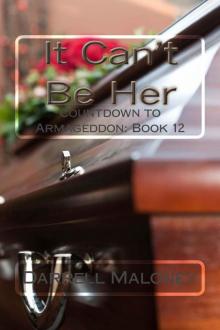 It Can't Be Her
It Can't Be Her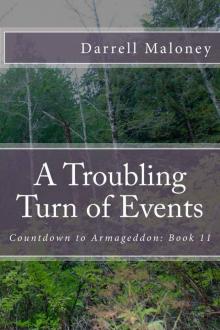 A Troubling Turn of Events
A Troubling Turn of Events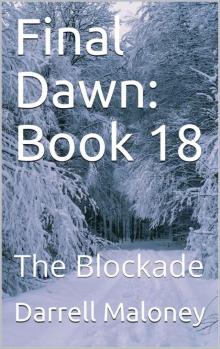 The Blockade
The Blockade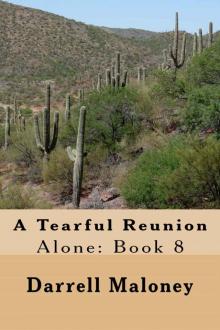 A Tearful Reunion
A Tearful Reunion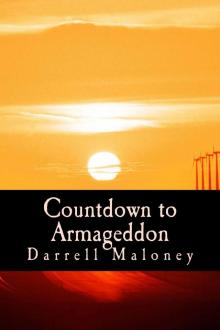 Countdown to Armageddon
Countdown to Armageddon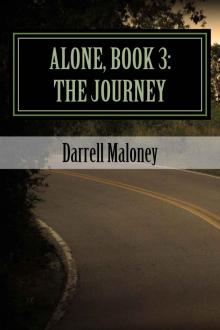 Alone, Book 3: The Journey
Alone, Book 3: The Journey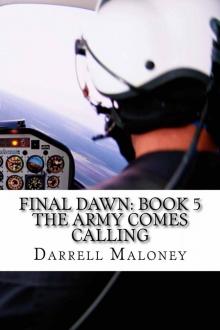 The Army Comes Calling
The Army Comes Calling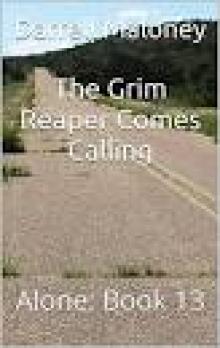 The Grim Reaper Comes Calling
The Grim Reaper Comes Calling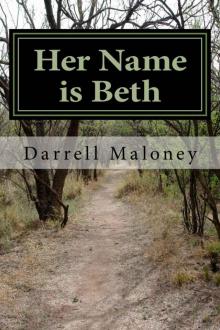 Her Name is Beth: Alone: Book 5
Her Name is Beth: Alone: Book 5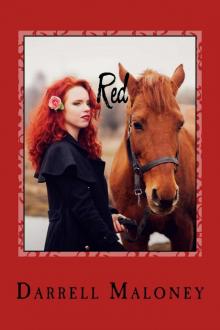 Red: The Adventure Begins
Red: The Adventure Begins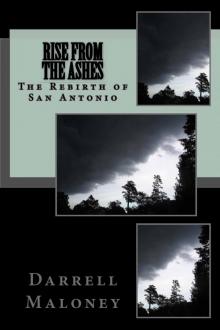 Rise From The Ashes: The Rebirth of San Antonio (Countdown to Armageddon Book 3)
Rise From The Ashes: The Rebirth of San Antonio (Countdown to Armageddon Book 3)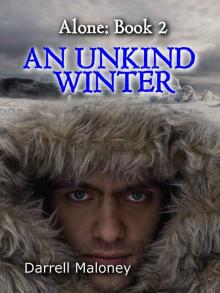 An Unkind Winter (Alone Book 2)
An Unkind Winter (Alone Book 2)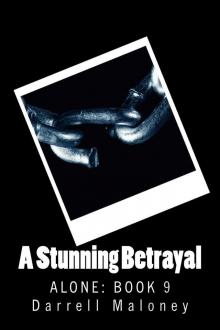 A Stunning Betrayal: Alone: Book 9
A Stunning Betrayal: Alone: Book 9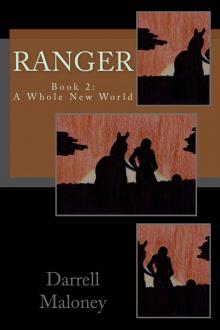 A Whole New World: Ranger: Book 2
A Whole New World: Ranger: Book 2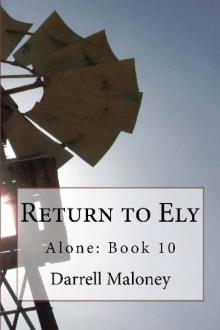 Return To Ely
Return To Ely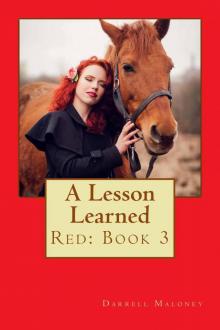 A Lesson Learned: Red: Book 3
A Lesson Learned: Red: Book 3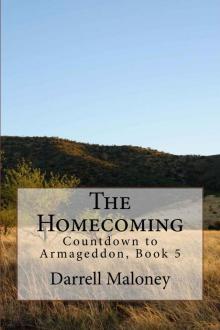 The Homecoming: Countdown to Armageddon: Book 5
The Homecoming: Countdown to Armageddon: Book 5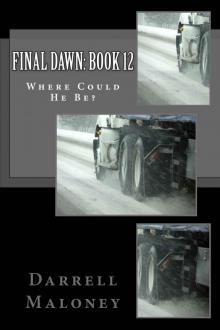 Final Dawn: Book 12: Where Could He Be?
Final Dawn: Book 12: Where Could He Be?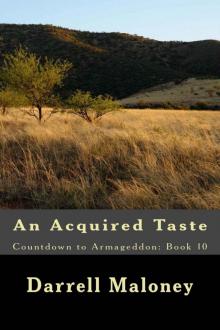 An Acquired Taste
An Acquired Taste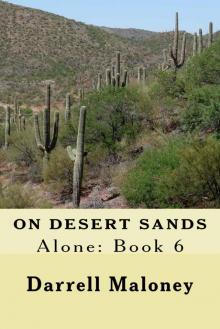 On Desert Sands: Alone: Book 6
On Desert Sands: Alone: Book 6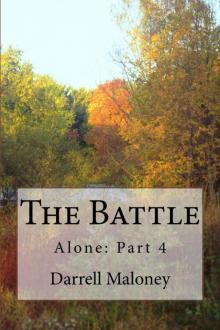 The Battle: Alone: Book 4
The Battle: Alone: Book 4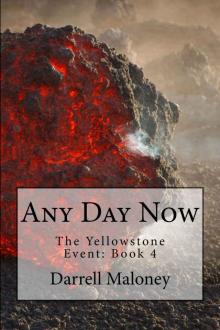 Any Day Now
Any Day Now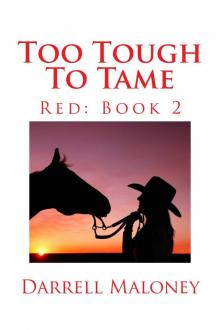 Too Tough To Tame: Red: Book 2
Too Tough To Tame: Red: Book 2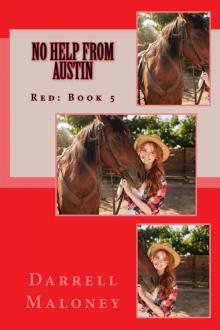 No Help From Austin: Red: Book 5
No Help From Austin: Red: Book 5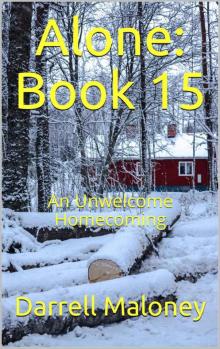 An Unwelcome Homecoming
An Unwelcome Homecoming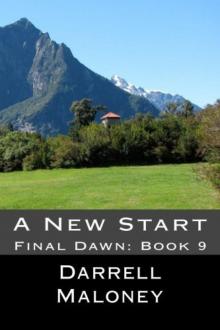 A New Start: Final Dawn: Book 9 (Volume 9)
A New Start: Final Dawn: Book 9 (Volume 9)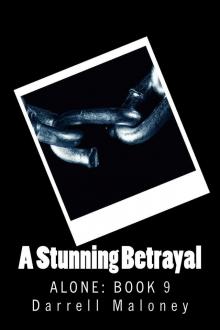 A Stunning Betrayal
A Stunning Betrayal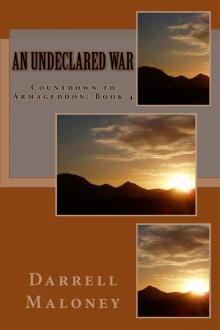 An Undeclared War (Countdown to Armageddon Book 4)
An Undeclared War (Countdown to Armageddon Book 4)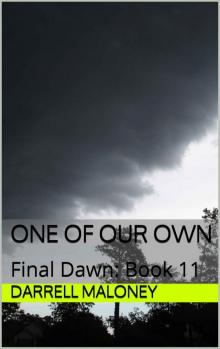 One of Our Own: Final Dawn: Book 11
One of Our Own: Final Dawn: Book 11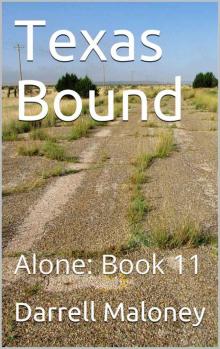 Texas Bound: Alone: Book 11
Texas Bound: Alone: Book 11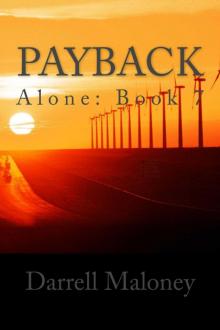 Payback: Alone: Book 7
Payback: Alone: Book 7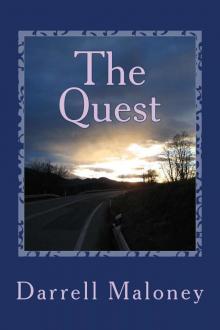 The Quest: Countdown to Armageddon: Book 6
The Quest: Countdown to Armageddon: Book 6 The Siege
The Siege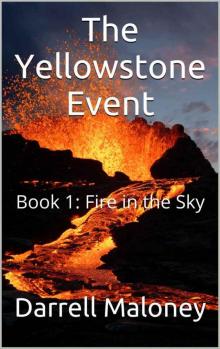 The Yellowstone Event: Book 1: Fire in the Sky
The Yellowstone Event: Book 1: Fire in the Sky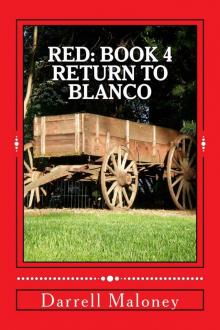 Return to Blanco (Red Book 4)
Return to Blanco (Red Book 4)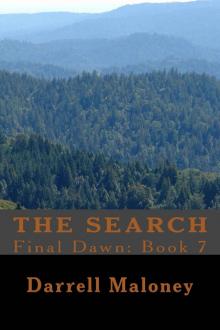 The Search
The Search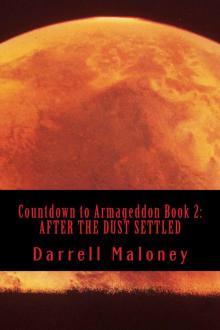 AFTER THE DUST SETTLED (Countdown to Armageddon Book 2)
AFTER THE DUST SETTLED (Countdown to Armageddon Book 2)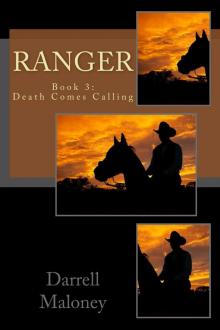 Death Comes Calling (Ranger Book 3)
Death Comes Calling (Ranger Book 3)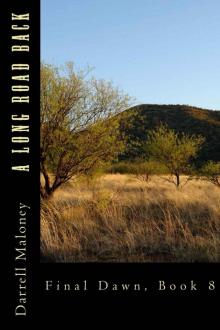 A Long Road Back: Final Dawn: Book 8
A Long Road Back: Final Dawn: Book 8